Ah, boiled eggs. A simple culinary feat, right? You’d think so, but trust me, I’ve had my fair share of egg-boiling mishaps. We’ve all been there, haven’t we? The dreaded green yolk, the rubbery white, that awful sulfurous smell – it’s enough to make you want to give up on boiled eggs altogether. But fear not, fellow egg enthusiasts, because I’ve finally cracked the code (pun intended, of course!). Through a mix of trial and error, a few invaluable tips from my Mum (who always manages to whip up the most perfect boiled eggs), and a sprinkle of scientific understanding, I’ve finally mastered the art of the boiled egg. And today, I'm sharing all my secrets with you, so you too can experience the joy of a perfectly cooked egg.
Part 1: The Foundation - Selecting the Right Eggs
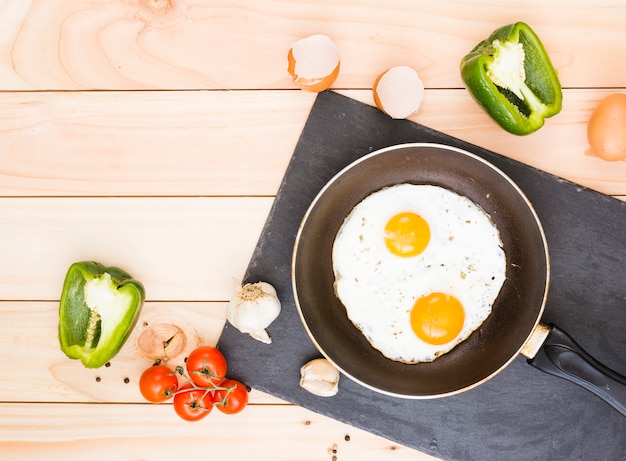
Before we even reach the boiling stage, the journey to perfect boiled eggs begins with choosing the right eggs. My personal preference leans towards free-range eggs – not only do they taste better, but I also feel good about supporting local farms. However, any high-quality eggs will do. Just ensure they're fresh! Older eggs, with their larger air pockets, are actually easier to peel, which we’ll discuss in a bit. But for now, let’s focus on the freshness factor, as it's key to achieving a smooth, even texture in your cooked egg.
Freshness Matters
How can you tell if an egg is fresh? Here are a few tips:
- The "Float Test": Place the egg in a bowl of cold water. If it sinks to the bottom and lies flat, it’s fresh. If it sits at an angle or floats, it’s older.
- The "Smell Test": Give the egg a sniff. A fresh egg should have little to no odor. If you notice a strong, sulphurous smell, it’s best to toss it.
- The "Date Check": Most commercially packaged eggs have a best-before date, which gives you an indication of their freshness.
You might be surprised at how quickly the freshness of an egg can impact its performance when boiled. A fresh egg will have a firmer yolk and a more robust white, making for a more satisfying bite.
Part 2: Peeling Power: The Art of Shell Removal
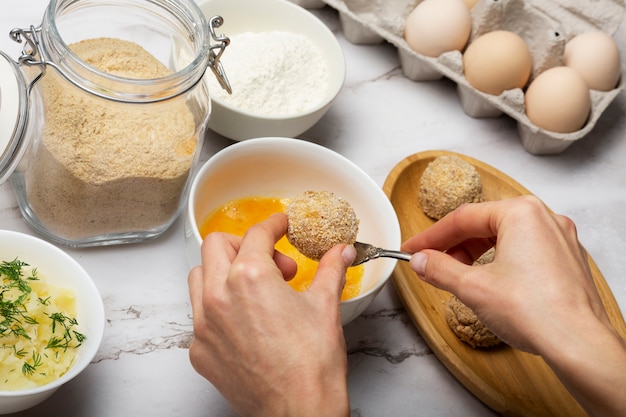
Let’s talk about the bane of many boiled egg enthusiasts – the dreaded peeling process. You know that frustration when you try to peel a boiled egg, and the shell comes off in tiny pieces, leaving frustrating bits stuck to the white? Well, there’s a trick for that: use slightly older eggs. Older eggs have a larger air pocket inside, which makes the shell loosen up and peel off much more easily. It sounds counterintuitive, but trust me, it works!
There are other peeling tips to make this task less daunting:
- Tap Gently: After the eggs are cooked and cooled, gently tap the shell all over, especially at the ends, to create tiny cracks.
- Start at the Top: Begin peeling from the larger end, where the air pocket is. This will give you a good grip to start pulling the shell away.
- Roll, Don't Pull: Use your thumbs to roll the egg in your hand as you peel. This rolling motion helps to separate the shell from the white without tearing the delicate egg white.
- A Little Water: If the shell is stubborn, use a bit of cold water to help loosen it up.
With a little practice, you'll be peeling eggs like a pro in no time!
Part 3: The Boiling Process: From Cold Start to Perfect Finish
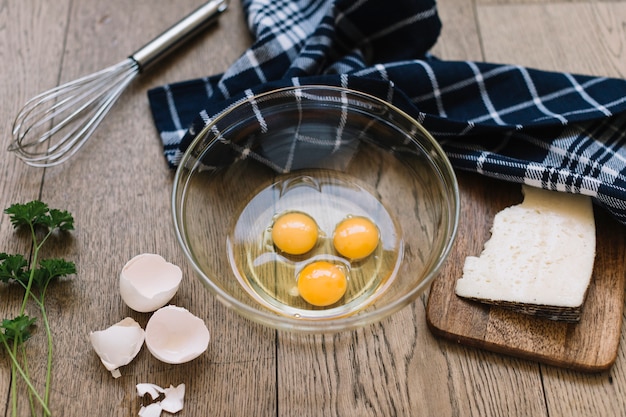
Now, let’s move onto the boiling process itself. This is where the magic happens, but it also requires a bit of precision and patience.
Preparing the Eggs
First things first, grab a saucepan large enough to comfortably fit your eggs, and fill it with cold water. This is crucial! You don’t want to add cold eggs to boiling water, as this can lead to cracks. Also, ensure the eggs are at room temperature. This helps prevent them from cracking as well. Think of it like gradual warming – it gives the egg a chance to adjust to the heat change without going into shock.
The Boiling Technique
Once the eggs are in the water, bring the pan to a rolling boil. Then, turn off the heat and cover the pan with a lid. This is the key to perfect boiled eggs. They cook in the residual heat of the water, ensuring even cooking and preventing those dreaded green yolks. This method also eliminates the need for constant monitoring, which is a bonus in my book!
Part 4: The Science Behind Green Yolks
Speaking of green yolks, let’s dive into the science behind this culinary nightmare. It all boils down to a chemical reaction between the iron in the yolk and the hydrogen sulfide in the egg white. This reaction occurs when the egg is overcooked. That's why using the method of turning off the heat and letting the eggs cook in the residual heat is so important.
Avoiding Overcooking
To avoid overcooking and those unsightly green yolks, you need to get the timing just right. And that’s where our next step comes in.
Part 5: The Timing Game: Achieving Your Desired Texture
The amount of time you leave the eggs to cook in the residual heat determines the texture of the yolk and white. Here’s a handy guide for your reference:
| Desired Texture | Time in the Hot Water |
|---|---|
| Soft Boiled | 3-4 minutes |
| Medium Boiled | 5-6 minutes |
| Hard Boiled | 8-10 minutes |
These are just guidelines, remember! You might need to adjust the timing based on your personal preference and the size of your eggs. For example, if you’re using extra-large eggs, you might need to add a minute or two to the cooking time. And if you prefer a softer yolk, you can always reduce the time by a minute or two.
Part 6: The Chill Factor: Cooling for Easier Peeling
Once the eggs have finished cooking, immediately drain the hot water and place the eggs under cold running water. This stops the cooking process and makes the eggs easier to peel, as the temperature shock helps to loosen the shell. I usually fill a bowl with ice water and let them cool down there for a few minutes. This also ensures that the eggs cool quickly and evenly.
Part 7: Creative Uses for Your Boiled Egg Masterpieces
Now that you've mastered the art of perfect boiled eggs, it’s time to get creative! Boiled eggs are incredibly versatile; you can use them in so many different ways. Here are a few ideas to spark your culinary imagination:
- Breakfast Hero: A classic for a reason! Enjoy them with toast, salt and pepper, or create a delicious egg salad sandwich with a little mayonnaise and mustard.
- Salad Superstar: Boiled eggs add protein and texture to any salad. I love them in potato salad, deviled eggs, or simply chopped on top of a green salad for a boost of nutrition.
- Quick and Easy Snack: Perfect for a light and satisfying snack. Slice them up and sprinkle with salt, pepper, or your favorite herbs and spices.
- Deviled Egg Delight: A crowd-pleaser that never fails to impress! Mash the yolks, add a touch of mayonnaise, mustard, and your favorite seasonings, and pipe the mixture back into the egg whites.
- Global Flavors: Venture beyond the traditional! Incorporate boiled eggs into a delicious Indian egg curry, where they're cooked in a flavorful sauce and served with rice.
Part 8: My Egg-Boiling Journey: Lessons Learned
This journey to perfect boiled eggs has been a bit of a rollercoaster, let me tell you. I've had my fair share of disasters, from rubbery whites to green yolks. There were times when I thought I’d never get it right. I even considered giving up, resorting to just buying those pre-boiled eggs from the supermarket! But I persevered, fueled by my love for a good boiled egg and a stubborn determination to master this culinary challenge. I experimented, I researched, and I learned from my mistakes. And finally, after all those years, I’ve got it down. It’s all about finding the right balance between time and temperature, and it’s definitely a skill worth mastering. Because, let’s face it, who doesn’t love a good boiled egg?
Part 9: FAQs: Your Boiled Egg Questions Answered
Here are some common questions I often get about boiled eggs:
1. Why do some eggs crack when I boil them?
Eggs can crack in boiling water due to a few factors: sudden temperature changes, old eggs with weak shells, or even just overfilling the pan. Make sure the eggs are at room temperature before boiling, and don’t overcrowd the pan. This gives the eggs a chance to adjust to the heat and prevents them from bumping against each other, which can cause cracks. Also, try to use fresher eggs, as they tend to have stronger shells.
2. What’s the difference between soft boiled, medium boiled, and hard boiled eggs?
It all boils down to the texture of the yolk:
- Soft Boiled: The yolk is runny and the white is set.
- Medium Boiled: The yolk is soft and creamy, and the white is fully set.
- Hard Boiled: The yolk is hard and the white is firm.
Choose the texture that best suits your preferences and recipe. soft boiled eggs are great for a quick breakfast, while hard boiled eggs are perfect for salads or deviled eggs.
3. What can I do if my egg yolks are green?
Unfortunately, there’s not much you can do to fix green yolks once they’ve formed. It’s a result of overcooking, so the best thing you can do is prevent it from happening in the future by following the recommended cooking times and making sure the eggs aren’t overcooked.
4. Can I freeze boiled eggs?
It’s not recommended to freeze boiled eggs. The texture can change and they might become watery or rubbery. It’s best to enjoy them fresh, or to store them in the refrigerator for a few days.
5. How long can I store boiled eggs in the fridge?
Boiled eggs can be stored in the fridge for up to a week, but it’s best to consume them within a few days for optimal freshness. Store them in a sealed container or wrap them in plastic wrap to prevent them from absorbing other fridge smells.
There you have it! My foolproof guide to perfect boiled eggs. I hope this has given you the confidence to tackle those eggs with gusto! So, next time you’re craving a simple, satisfying snack or a delicious addition to your meal, don’t hesitate – grab some eggs and put my tips to the test. You won’t be disappointed! Happy egg boiling!
Everyone is watching
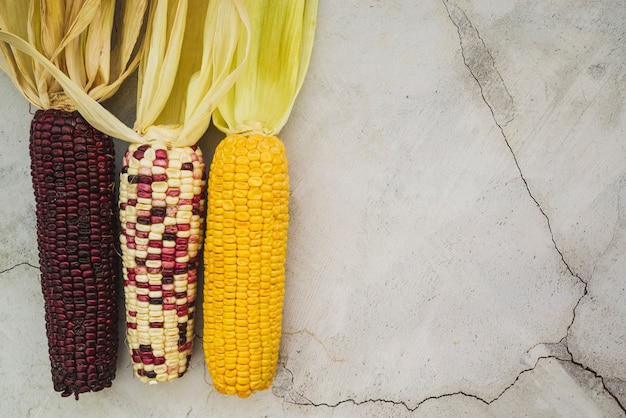
Corn on the Cob: The Ultimate Guide to Perfectly Cooked Ears
Healthy MealsAh, corn on the cob. Just the name evokes images of sunny days, barbecues, and that sweet, juicy flavour that ...
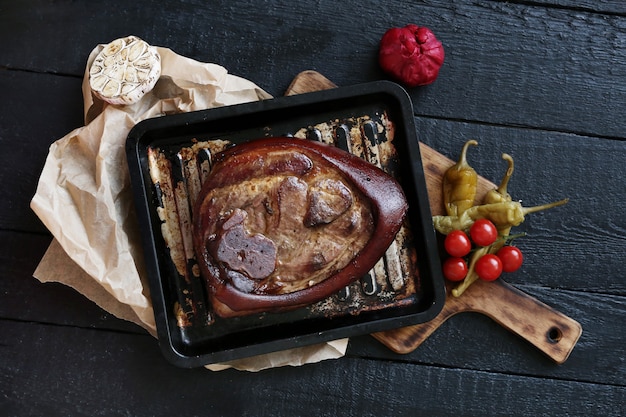
Perfect Pork Roast Oven Cooking Time: A Guide to Delicious Results
Healthy MealsThere's something truly satisfying about a perfectly roasted pork. The aroma alone is enough to make your mout...
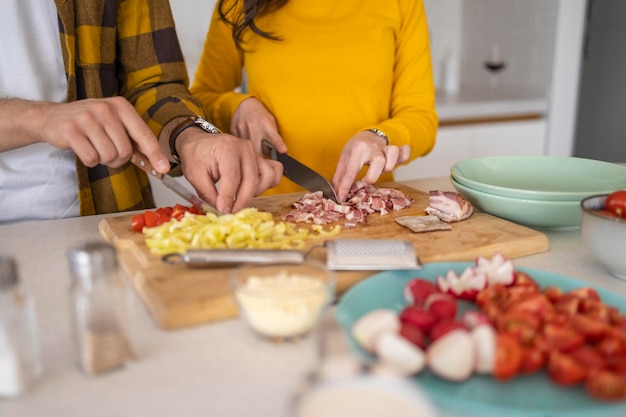
Ham Cooking Time: How Long to Bake, Smoke, or Boil a Delicious Ham
Healthy MealsAh, ham. It's a classic, isn't it? A real crowd-pleaser, especially around holidays. And when done right, it'...
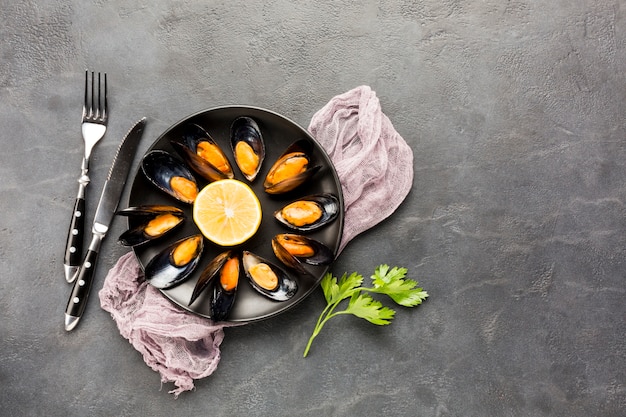
Scallops: The Ultimate Guide to Perfect Cooking
Healthy MealsAh, scallops. Those delicate, sweet, and utterly delicious morsels of the sea. They hold a special place in my...
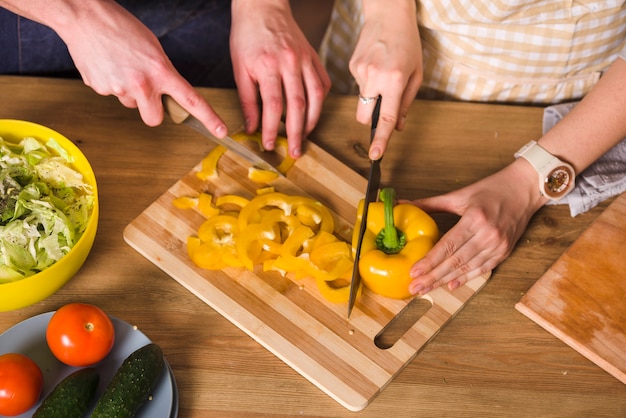
Spaghetti Squash: The Ultimate Guide to Cooking and Serving
Healthy MealsRemember that time you saw spaghetti squash at the supermarket, looking all bumpy and strange, and thought, "W...
